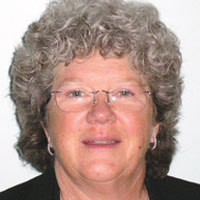Perhaps most interesting, emerging data suggest that use and abuse of prescription drugs may be decreasing in states where medical cannabis is legal.12 Two recent studies examining cannabis laws and prescription of opioids found that “medical cannabis laws are associated with significant reductions in opioid prescribing in the Medicare Part D population,” concluding that the potential for marijuana to decrease opioid use in the Medicaid population deserves consideration during policy discussions about marijuana reform and the opioid epidemic.13, 14
The support for policy changes in states that have legalized marijuana for medical use suggests it is gaining greater acceptance in our society. The increase in jurisdictions that have approved marijuana for medical use requires that we, as health care providers, understand the implications for our practice and educate ourselves on the laws and regulations in our respective states.
Recent guidelines from the National Council of State Boards of Nursing (NCSBN) identify six principles of essential knowledge for NPs (that could apply to PAs, as well) who care for patients who qualify to participate in a Medical Marijuana Program (MMP). These include principles of safe and knowledgeable practice for clinicians when qualifying a patient for an MMP.3 Note that I said qualifying a patient and not prescribing marijuana. Federal law still classifies cannabis as a Schedule I controlled substance, thus prohibiting the actual prescription of marijuana, and prohibits pharmacies from dispensing cannabis. Quite a contradiction!
All of that said, it is incumbent upon each of us to understand the complexities of the MMP in our state. Each has its own specifications as to the qualifying conditions or symptoms, as well as the requirements to become an approved provider. And each is as diverse as the opinions on marijuana use.
Without doubt, the debate and dichotomy about medical marijuana will ensue for years. What we as health care providers must do is keep current on the laws and regulations not only in our state, but also at the federal level. As a primer on the status of MMPs and provider approval, I encourage all to review the NCSBN document.3
As always, you can share your thoughts with me via NPeditor@mdedge.com.

